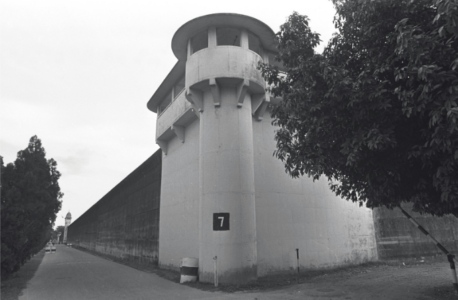Singapore’s Home Affairs and Law Minister discusses the nation’s stance on capital punishment during a BBC HARDtalk interview.
SINGAPORE: Home Affairs and Law Minister K Shanmugam stated on Wednesday (June 29) that he firmly believes the death penalty is the appropriate policy for drug trafficking in Singapore. He emphasized that there is “clear evidence” supporting capital punishment as an effective deterrent.
Mr. Shanmugam made these comments during an interview with BBC’s Stephen Sackur for the program HARDtalk, where they discussed Singapore’s drug policies and the implications of the death penalty. The episode aired on Wednesday and also addressed issues of race and geopolitics.
In the interview, Mr. Sackur noted Singapore’s reputation for its “draconian criminal code,” particularly regarding drug-related offenses, which carry a mandatory death penalty. He asked Mr. Shanmugam if he had any doubts about the appropriateness of such a policy. Mr. Shanmugam confidently replied, “I don’t have any doubts,” explaining that capital punishment is part of a comprehensive strategy to combat drug abuse.
He elaborated that the death penalty is specifically targeted at drug traffickers and is enforced due to its proven deterrent effect on potential offenders.
THE IMPACT OF DRUGS
Mr. Shanmugam shared alarming statistics about the global drug crisis, citing a World Health Organization report from 2021 that indicated around 500,000 deaths are attributed to drug abuse each year. He highlighted the detrimental effects of drug trafficking on users and their families, stating that drug traffickers inflict lasting damage.
The discussion also touched on the case of Nagaenthran Dharmalingam, a convicted drug trafficker executed in April after spending over a decade on death row for importing 42.72 grams of heroin. Mr. Sackur raised concerns about the appropriateness of the death sentence for Nagaenthran, who was reported to have an IQ of 69, suggesting he had an intellectual disability.
In response, Mr. Shanmugam asserted that the courts determined Nagaenthran had the “workings of a criminal mind” and had made a deliberate decision to profit from drug trafficking. He also pointed out that the psychiatrist called by the defense had confirmed that Nagaenthran was not intellectually disabled.
PROTECTING SINGAPOREANS
Mr. Shanmugam emphasized that Singapore’s drug policies, including the death penalty, are primarily aimed at “saving lives.” He noted that in the 1990s, Singapore arrested about 6,000 individuals per year for drug offenses, a number that has decreased to around 3,000 annually today, despite an increase in drug availability in the region.
During the interview, he acknowledged that there are approximately 60 individuals on death row in Singapore, the majority of whom are linked to drug offenses. However, he underscored that the country has also saved thousands of lives through its rigorous enforcement policies.
Mr. Sackur quoted the Anti-Death Penalty Asia Network, which stated that Singapore’s international reputation has “deteriorated significantly” due to cases like Nagaenthran’s execution. He questioned whether the government was willing to sacrifice its reputation for what he termed “draconian decisions.”
Mr. Shanmugam responded by reiterating the importance of protecting Singaporeans and highlighted the media’s tendency to report on individual cases of execution rather than the broader impact of drug trafficking. He remarked, “A single hanging of a drug trafficker is a tragedy; a million deaths from drug abuse is a statistic.”








